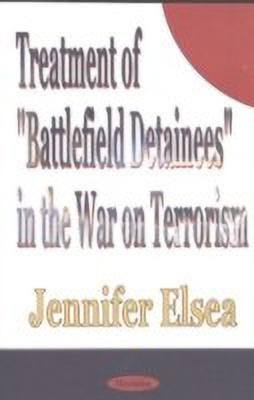Treatment of 'Battlefield Detainees' in the War on Terrorism(English, Paperback, Elsea Jennifer)
Quick Overview
Product Price Comparison
After earlier criticism from human rights organisations and many foreign governments regarding the determination that the Geneva Conventions of 1949 do not apply to the detainees held in Cuba, President Bush shifted position with an announcement that Taliban fighters are covered by the 1949 Geneva Conventions, while al Qaeda fighters are not. Taliban fighters are not to be treated as prisoners of war (POW), however, because they reportedly fail to meet international standards as lawful combatants The decision is not likely to affect the treatment of any of the detainees held at the US. The Geneva Conventions of 1949 create a comprehensive legal regime for the treatment of detainees in an armed conflict. These 'unprivileged' or 'unlawful combatants' may be punished for acts of violence for which legitimate combatants could not be punished. Some have argued that there is implied in the Geneva Conventions a third category comprised of combatants from militias who do not qualify for POW status but also fall outside of the protection for civilians. These combatants may be lawful in the sense that they do not incur criminal liability for engaging in otherwise lawful combat, but they would not be entitled to privileges as POWs or protected civilians. The status of the detainees may affect their treatment in several ways. This book explores the dilemma that the US government faces as far as the classification of its prisoners that they deem to not fall under the POW status and the treatment and rights that they are entitled to.


